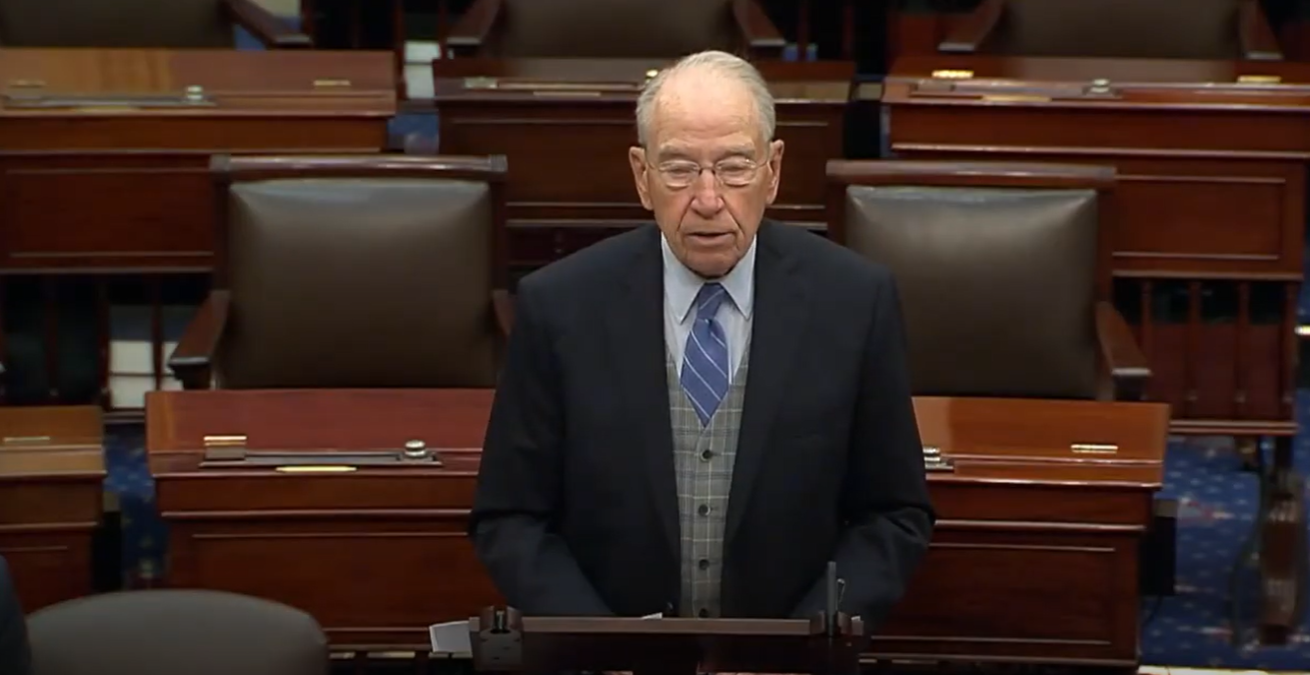Senate Democrats have obstructed the confirmation of 10 U.S. attorneys nominated by President Donald Trump, prompting criticism from Republican leaders who argue that this delay undermines public safety. The move comes as the Senate grapples with a backlog of nominations, with approximately 1,000 Trump nominees awaiting approval across various positions.
Explainer Senate Democrats Block Confirmation of 10 U.S. Attorneys
On Wednesday, Senator Chuck Grassley, R-Iowa, sought a unanimous consent vote to confirm the nominees, who had already been vetted by the Judiciary Committee. However, Senator Dick Durbin, D-Ill., objected to the request, resulting in a requirement for individual roll call votes for each nominee. This process is expected to consume significant Senate floor time, potentially stretching over several months.
Grassley expressed frustration at the delay, stating, "Our communities desperately need top federal prosecutors in place. Interested in stopping fentanyl? I am. Thousands of people are dying." He emphasized the importance of having U.S. attorneys in their roles to effectively prosecute cases related to public safety.
The Senate's current approach contrasts sharply with the traditional practice of confirming noncontroversial nominees through a single voice vote. Instead, each nominee will require discussion, a cloture vote to end debate, and then a confirmation vote, which could take hours for all ten nominees.
Durbin defended the Democrats' stance, arguing that the holds on nominations are necessary to ensure that the Senate does not rush through confirmations without proper scrutiny. He stated, "It would not have been fair or realistic to force the Senate to debate and vote on every single one of [Trump’s] nominees. We put public safety and the needs of law enforcement ahead of politics."
The ongoing impasse highlights a broader strategy among Senate Democrats to delay the confirmation of Trump’s nominees, a tactic that some critics argue is politically motivated. Grassley noted that Durbin previously placed a "blanket hold" on all U.S. attorney positions before Trump had any nominees confirmed, which he described as an unusual move.
In a recent press release, Durbin acknowledged the urgency of filling U.S. attorney positions, stating, "Without Senate-confirmed leadership of U.S. Attorneys, public safety will suffer across the United States. [Republicans] cannot delay these nominations and then stand up and say they are for 'law and order' and want to 'fight crime.'"
The standoff has prompted Senate Republicans to consider potential changes to Senate rules to address the backlog of U.S. attorney nominations. Grassley has reportedly been negotiating with Democrats for over two months to reach a compromise, but those discussions have yet to yield results.
As the Senate continues to face challenges in confirming nominees, the implications for law enforcement and public safety remain a point of contention between the two parties. With the Senate in session for limited hours each week, the timeline for confirming Trump’s nominees could extend significantly, raising concerns among Republicans about the impact on federal law enforcement operations.
The situation underscores the growing partisan divide in the Senate, as both parties navigate the complexities of confirming presidential nominees amid a contentious political landscape.
Why it matters
- Senate Democrats' obstruction of 10 U.S. attorney confirmations raises concerns about public safety amid a backlog of 1,000 Trump nominees.
- The delay in confirmations could significantly impact federal law enforcement operations and the prosecution of critical cases.
- Republican leaders criticize the Democrats' tactics as politically motivated, potentially undermining bipartisan cooperation in the Senate.
What’s next
- Senate Republicans may propose changes to Senate rules to expedite the confirmation process for U.S. attorneys.
- Individual roll call votes for each nominee are expected to take significant Senate floor time, potentially extending over months.
- Negotiations between Grassley and Democrats continue, but no compromise has been reached yet.

